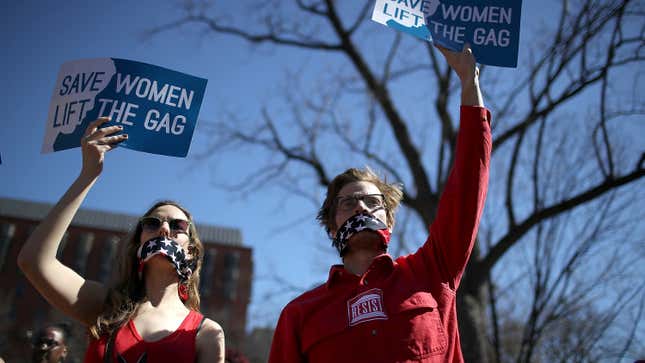Trump's Global Gag Rule Is Already Closing Clinics Worldwide
Politics

Donald Trump’s reinstatement of the anti-abortion global gag rule, which bars non-governmental organizations that provide abortions or even talk about abortions from receiving federal funding, has already led to devastating consequences. According to a new report in the Guardian, non-profits running clinics around the world have had to cut services and close clinics, leading to a rise in sexually transmitted infections and numerous cases of people being forced to seek out dangerous abortions.
Here’s how the global gag rule has impacted clinics run by the International Planned Parenthood Federation (IPPF), per the Guardian:
-

-

-

-

-

-

-

-

-

-

-

-

-

-

-

-

-

-

-

-

-

-

-

-

-

-

-

-

-

-

-

-

-

-

-

-

-

-

-

-








































